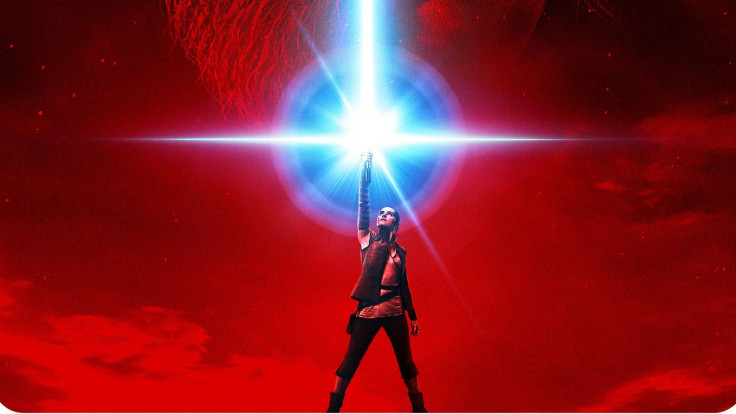An apocalyptic mushroom cloud looms over a new Rolling Stone cover story about Star Wars: The Last Jedi. After an anecdote from director Rian Johnson’s childhood, the piece opens:
“Back in the real world, everything is broken. In the months since the franchise stirred back to life in 2015’s The Force Awakens, it has felt rather like some incautious child grabbed civilization itself and threw it across the room — and, midflight, many of us realized we were the evil Empire all along, complete with a new ruler that even latter-day George Lucas at his most CGI-addled would reject as too grotesque and implausible a character.”
Setting aside the terribly muddled metaphor — Is the incautious child Trump, too? How did he start by throwing “civilization,” only for it to transform into American empire midflight? — this sort of intro is probably familiar to anyone reading pop culture coverage in 2016-2017. People are worried about the future, baffled and angered by the day-to-day absurdities and horrors of American society. Sometimes the apocalyptic intro, turning from a confusing world to the explicable moral landscape of a movie, feels like a dumb, overwrought segue. But here it’s strangely apt, since The Last Jedi feature reveals the same existential terror hangs over the heads of pop culture reporter and Star Wars cast member alike.
Maybe the most consequential reveal in the Rolling Stone cover story is that Daisy Ridley doesn’t plan on appearing in Star Wars series entries beyond Episode IX. “I am really, really excited to do the third thing and round it out, because ultimately, what I was signing on to was three films. So in my head, it’s three films. I think it will feel like the right time to round it out.” The end of Rey would suggest an end to the ongoing, Skywalker-connected character saga that’s defined every Star Wars release outside of Rogue One: A Star Wars Story, perhaps to be replaced by whatever trilogy-spanning narrative Rian Johnson has planned for his recently announced trilogy, set in “a corner of the galaxy that Star Wars lore has never before explored.”
Rolling Stone’s Brian Hiatt pressed Ridley on her answer: surely she’d consider returning for another sequel, perhaps even 30 years later, like Mark Hamill, Harrison Ford and Carrie Fisher did with The Force Awakens? “Who knows?” she responds. “I honestly feel like the world may end in the next 30 years, so, if in 30 years we are not living underground in a series of interconnected cells… then sure. Maybe.”
The apocalypticism is everywhere, even in the hearts of successful British millennials. But will it appear in Star Wars? Has it already? Rolling Stone seems to think so:
“Weirdly, the saga saw it all coming,” Hiatt writes. “Or maybe it’s not so weird when you consider the Vietnam War commentary embedded in Lucas’ original trilogy, or the warnings about democracy’s fragility in his prequels. In the J.J. Abrams-directed The Force Awakens, a revanchist movement calling itself the First Order assembles in Triumph of the Will-style marches, showing the shocking strength of an ideology that was supposed to have been thoroughly defeated long ago. What’s left of the government is collapsing and feckless, so the only hope in sight is a band of good guys known as the Resistance. Familiar, this all sounds.”
We express our confusion, disappointment and frustrations through the medium in which we work. But sometimes this can lead to a touch of over-analysis, where we see our own concerns mirrored in stories that insufficiently support a political reading. Sure, the Star Wars Prequel Trilogy contained an inept parable about the fall of democracy, but it’s hard to argue for The Force Awakens’ prescience. If anything, its preference for “Triumph of the Will-style marches” demonstrates how much Episode VII was trapped in the same WW2 framing as the Star Wars Original Trilogy, analogizing stormtroopers to Nazis, thereby aligning Star Wars with the simplest, most binary good vs. evil of all war morality narratives. There’s no indication that the First Order represents anything resembling the rise of a racist, nativist populist right or its virulent fringe of web-savvy, youth movement Nazis.
As for Lucas’ framing of the original Star Wars trilogy as partly a Vietnam parable — explained in J.W. Rinzler’s The Making of Star Wars: Return of the Jedi — maybe if a metaphor is so subversive as to be invisible, it wasn’t that useful to begin with? When Star Wars came out in 1977, the American public didn’t read it as a searing indictment of the invasion of Vietnam (and even if they had, it was a bit late… we pulled out in 1973). And it looks just as unlikely that Star Wars: The Last Jedi will have anything so biting that its clear message will cut through the propagandistic morass of American politics in 2017.
But at least we won’t be thinking about dying in a fiery, bone-melting apocalypse for two hours and 33 minutes.
Star Wars: The Last Jedi screenings begin Dec. 14.
- Pushes each character forward
- Amazing ship battles
- I love Kylo Ren
- Kylo Ren shirtless
- Kylo Ren
- Luke Skywalker has the most astonishing arc in mainstream hero history
- That one Leia moment no one liked, but they're wrong
- Plot contrivances to position characters
- A few clunky lines
- Canto Bight action sequences feels superfluous



















